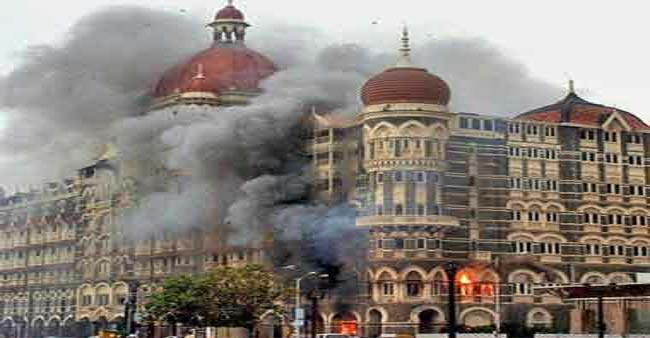 Bishkek, Sep 13: Pakistan has informed India that it has appointed a new prosecutor to probe the 2008 Mumbai terror attack and will send a Judicial Commission to the country on September 23 to cross-examine witnesses in the case, meeting India's demand for progress in the investigations.
Bishkek, Sep 13: Pakistan has informed India that it has appointed a new prosecutor to probe the 2008 Mumbai terror attack and will send a Judicial Commission to the country on September 23 to cross-examine witnesses in the case, meeting India's demand for progress in the investigations.
External Affairs Minister Salman Khurshid today said he was told about Pakistan's decision during an informal chat he had with Sartaj Aziz, the advisor to Pakistan Prime Minister on Foreign Affairs, here in the capital of Kyrgyzstan last night.
"We had an informal chat. We had a good chat. We have been together here," he said.Aziz and Khurshid, who are here for the Shanghai Cooperation Organisation (SCO) Summit, shared the same table over dinner.
Talking to reporters, Khurshid said that he was informed by Pakistan about a new prosecutor been appointed in the Mumbai attacks case.
"One emphasis that we have legitimately given is the public sentiment on the slow progress of the Mumbai incident. We want accountability for the Mumbai incident," he said.
"We have been told that a Judicial Commission will come to India on September 23 to cross examine witness in connection with 26/11. Another thing is that a prosecutor has been appointed."
The appointment of a new prosecutor to handle the 26/11 Mumbai attack case came as the previous prosecutor Chaudhry Zulfizar Ali was shot dead by unidentified gunmen in May.
Pakistan's decisions came as India has been demanding action against perpetrators of the Mumbai attacks and steps to curb activities of anti-India militant leaders like Jamaat-ud-Dawah chief Hafiz Saeed.
On whether roadblocks for discussion between Prime Ministers of the two countries later this month in New York have been removed, Khurshid said, "We told him that in view of the wish of the people for positive talks, there has to be a conducive atmosphere. Whenever high-level talk process is on, atmosphere should be good."
"If there is a lack in atmospherics, there is a need to correct things to proceed. But if things are not sorted then there difficulties are faced," he said.
Pakistan has been pushing for a meeting between Prime Minister Nawaz Sharif and his Indian counterpart Manmohan Singh on the margins of the UN General Assembly in New York later this month. India has been non-committal on the meeting.
Relations between the two countries soured after five Indian soldiers were killed in an attack by Pakistani troops on the Indian side of the LoC on August 6. Both sides have accused each other of violating the truce along the LoC.






Comments
Add new comment